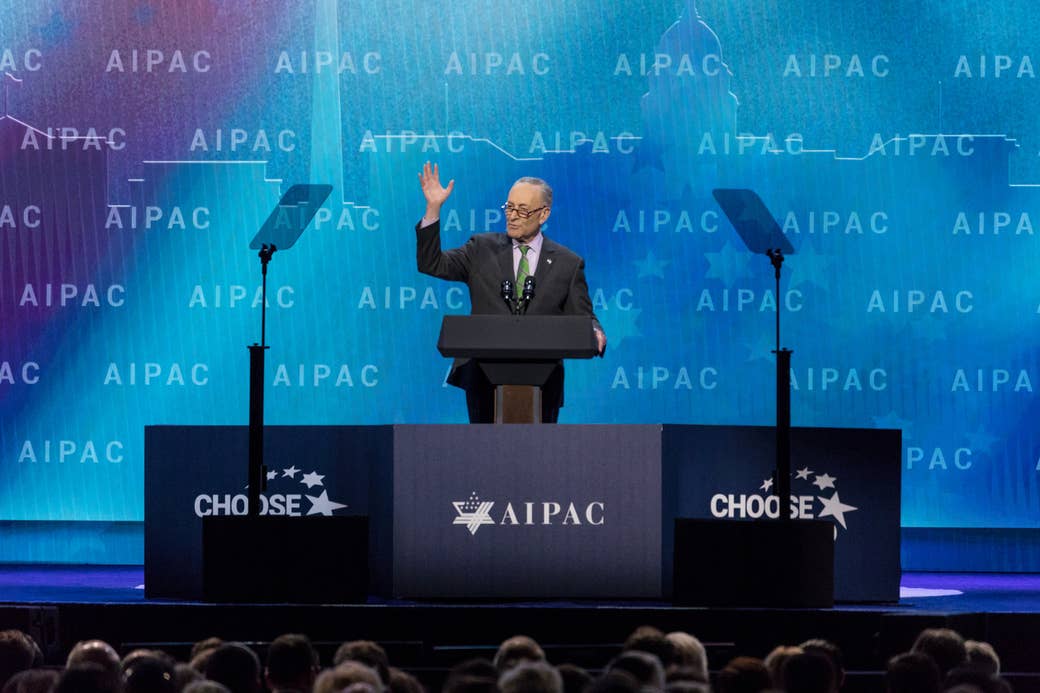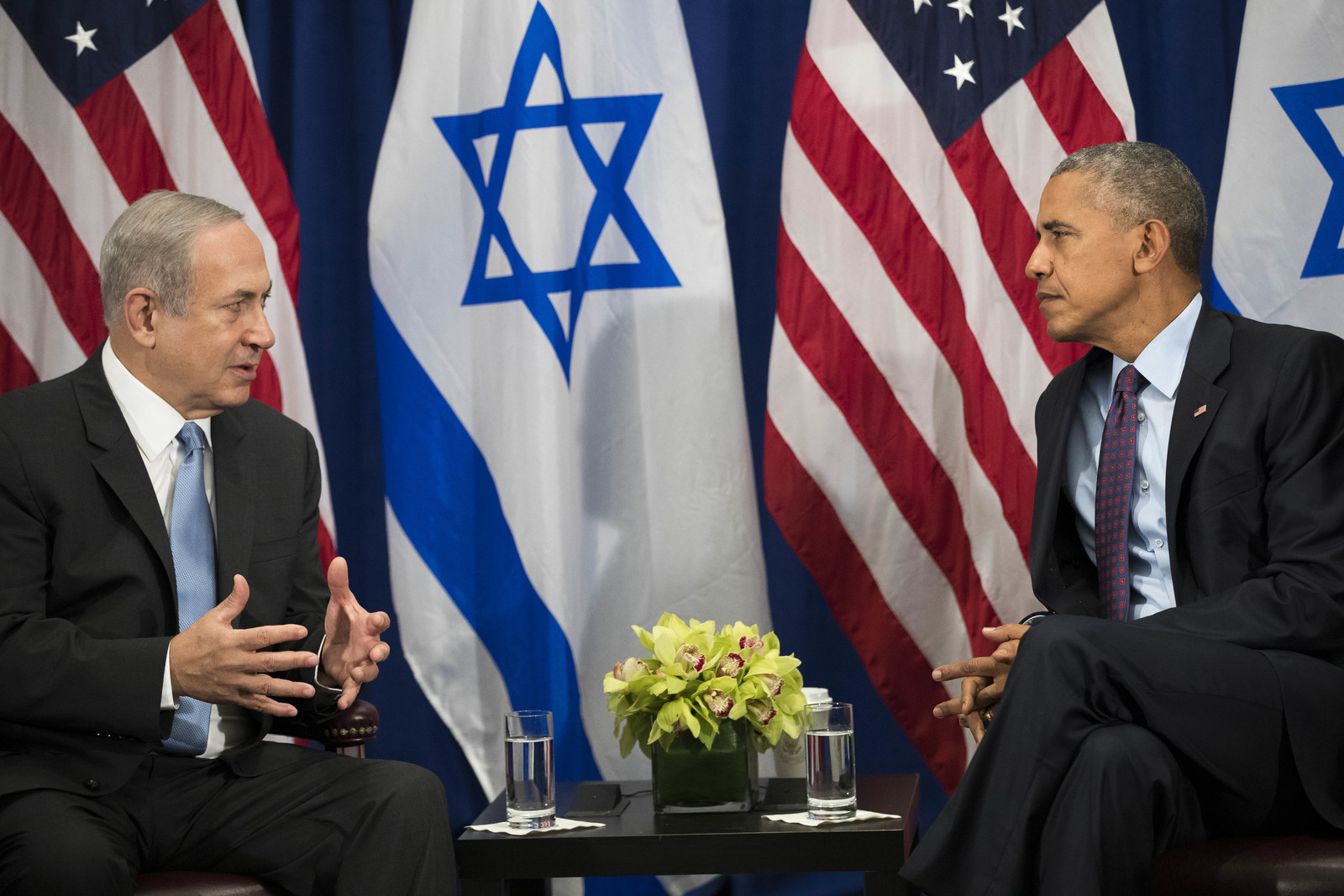
WASHINGTON — Some of the Democratic Party’s brightest new stars believe Israel is a rogue state that should be treated like apartheid South Africa.
It’s the latest sign that, after 50 years, support for Israel is no longer a bipartisan cause — a dramatic change that will be felt in the wide-open Democratic presidential primary. The young progressives who have ascended to power within the Democratic Party over the last few years want to force what were once fringe views into the mainstream, and significantly change US policy toward Israel.
“I think every 2020 presidential contender will be asked how can they stand by Benjamin Netanyahu when he openly supports Trump’s border wall and compares it to his own draconian policies,” said Waleed Shahid, communications director for Justice Democrats, an assertive progressive group that calls for more criticism of Israel, which rose to prominence in 2018 with its early backing of Rep. Alexandria Ocasio-Cortez.
Much of the debate will center on the Boycott, Divestment, and Sanctions movement, or BDS, which has the support of two young, new Muslim members of Congress — Rashida Tlaib from Michigan and Ilhan Omar from Minnesota.
They are part of a revitalized progressive wing that represents a new generation of potential Democratic voters looking to force presidential candidates to grapple with what it actually means for the US to support Israel in the run-up to 2020. That wing is demanding that Democrats who are seeking the presidency debate the country’s stance toward Israel — in the same way that they would debate something like health care policy — rather than treating it as a foregone conclusion.
IfNotNow, a progressive organization whose goal is “to end American Jewish support for the occupation” (but takes no position on BDS) will launch a “public push to get 2020 candidates to not attend [the American Israel Public Affairs Committee’s] annual conference in March,” founding member Yonah Lieberman told BuzzFeed News. By not attending AIPAC, he said, presidential hopefuls would “show the growing progressive coalition that they stand with us.”
In 2016, Democratic candidate Bernie Sanders made headlines by skipping the conference. To have candidates skip the conference as the rule, and not the exception, would be a departure from the norm.
The Democratic Party’s progressive wing has long pushed for more criticism of Israel policy. Young people and people of color in particular feel a sense of solidarity with Palestinians, and argue that the progressive movement, if it is to be intersectional, must include Palestinian rights.
But the issue has remained a low public priority and one actively suppressed by party leaders as when, in one visible moment, the chair of the Democratic convention refused to recognize a voice vote against recognizing Jerusalem as the capital of Israel in 2012. Changing Democratic demographics and increasingly open Republican support for permanent Israeli occupation of the West Bank has increasingly shifted Americans’ views of Israel along partisan lines.
A Pew Research poll last year found just 27% of Democrats said they sympathized with Israel, down from 38% in 2001. (Republican sympathy has climbed from 50% to 79% in the same time frame.) And younger voters are dramatically less supportive than older voters, according to the 2018 poll — just 32% of adults age 18 to 29 said they sympathized with Israel more than the Palestinians, compared to 56% of voters aged 50 to 64 and voters over 65.
It’s a dispute that saw its spark on a debate stage in Brooklyn in 2016, when Bernie Sanders declared: “We are going to have to treat the Palestinian people with respect and dignity,” a line that prompted a host of takes from left-leaning outlets and authors, and which was followed by the appointment of three critics of Israel by Sanders to the DNC platform drafting committee.
No candidate who has announced, or who is expected to announce, their candidacy for the 2020 Democratic nomination has come out in support of BDS. But support from individuals like Tlaib and Omar is pushing the progressive groups that back them to take more aggressive stances on the issue than they might otherwise, a posture which could make it a litmus test in 2020 defining what it means to be a progressive Democrat.
“I expect some Democratic candidates to engage with BDS, whether to defend the right to boycott Israel as a matter of free speech, as senators Sanders and [Dianne] Feinstein did, or in support of this time-honored, nonviolent form of resistance to oppression, as Reps. Ilhan Omar and Rashida Tlaib have done,” Omar Barghouti, cofounder of the BDS movement for Palestinian rights, told BuzzFeed News in an email.
“We support Rashida Tlaib and Ilhan Omar’s leadership on it,” said Shahid. It is “not necessarily a priority of our organization,” he said, but added: “These kinds of leaders need support when they’re taking risks.”
It’s a generational shift that cuts across many identifying lines. “For us, for young American Jews, we don’t see a distinction between supporting Palestinian freedom and supporting a Green New Deal. We don’t see a distinction between believing that the occupation is a moral crisis and believing that health care is a human right,” Lieberman said.
The question now is what that will mean for the candidates hoping to seal the Democratic nomination. The questions regarding Israel won’t change: Do you believe that Jerusalem is the capital of Israel? Should the US Embassy be in Jerusalem? Should the United States provide aid to Israel? Does the United States support Israel’s right to defend itself? But if candidates want to win young left-leaning voters, the candidates may find that they have to give different answers.

Jim Zogby, president of the Arab American Institute and a longtime advocate of Palestinian rights, told BuzzFeed News that he wasn’t sure, at this still early stage, which candidate, or candidates, will be where on the issue, but said, “I can’t imagine, in a field as large as the one we’re gonna have — I can’t imagine that you will not have more than one candidate who will stake a claim on this turf and want to articulate a different perspective.”
“Two years out, I had no idea that Bernie Sanders would be raising the issue. I don’t think Bernie Sanders did,” Zogby said of 2016. But at some point, in Zogby’s view, Sanders was struck by the importance of the issue and saw the resonance it had with voters. If Sanders runs again, he said, “no doubt the issue will be there.”
Sanders has not declared whether he’s running yet; he currently says he opposes BDS but also opposes bills that critics argue would stifle First Amendment–granted rights to boycott Israel.
Dozens of Democrats are publicly mulling presidential bids, but few have officially announced their intention to run. Those who have already announced include Massachusetts Sen. Elizabeth Warren, who said she was forming an exploratory committee late last month, former Housing secretary Julián Castro, who launched his campaign last weekend, and Rep. Tulsi Gabbard from Hawaii, who announced her plan to run on CNN.
Many of the likely candidates will take the view that the Democratic candidate for president has more or less taken for decades. For example, there’s former vice president Joe Biden who, during the 2008 presidential debates, said of himself, “no one in the United States Senate has been a better friend to Israel than Joe Biden.” Biden’s spokesperson declined to comment for this story. New York Sen. Kirsten Gillibrand and California Sen. Kamala Harris have both said they support aid to Israel and do not support BDS.
But thus far, prospective candidates have only been forced to engage with BDS in the form of a bill in Congress, reintroduced this year by Senate Republicans, that would penalize companies and organizations that engage in BDS. The bill would allow local and state governments to require businesses contracting with them not to participate in boycotts of Israel.
Even organizations that oppose BDS, like J Street, which positions itself as an alternative to the hardline pro-Israel AIPAC, oppose the bill, which some Republicans — and pro-Israel Democrats — are trying to present it as a referendum on BDS itself. But a number of Senate Democrats, including some considering presidential bids, like Harris, have said they oppose the bill because it would violate people’s First Amendment rights.
“At the very least you need to support people’s rights to engage [in] BDS,” one progressive Democratic Senate aide told BuzzFeed News. “If people want to oppose the goal, they can do that, but what I do see becoming a Democratic consensus [is that] the right to boycott, the right to peaceful, nonviolent, economic protest is a protected right.”
Some Democrats who are seen as generally progressive have already spoken out against the Israeli government’s behavior. Warren, for example, made her first foreign trip as a senator to Israel back in 2014 — and then, this April, made news for saying she was concerned about death and injury in Gaza and called on the Israeli defense forces to exercise restraint. There are outliers like Gabbard, who blasted Israel for its use of live fire in Gaza but also, in 2016, received an award from Rabbi Shmuley Boteach, who is close to Sheldon Adelson, the prominent Republican and fiercely pro-Israel donor.

So far, it’s unclear whether, or how, their positions now will stand up to pressure from the progressive wing of the party, and also from traditionally pro-Israel organizations. Take the case of Beto O’Rourke, the former congressman and one-time Senate hopeful from Texas. O’Rourke voted against sending $225 million in additional funding to Israel for its missile defense system in a large appropriation without debate back in 2014. He was then fiercely criticized and courted by pro-Israel backers. O’Rourke has since traveled to Israel, and he was, according to Open Secrets, the top recipient of money from those who support Israel last year, although Open Secrets defines this as receiving money from a wide swath of the pro-Israel organizations, from AIPAC to J Street. O’Rourke’s spokespeople did not respond to a request for comment for this story.
Candidates will also need to deal with realities within their own party. The Democratic old guard on Capitol Hill — Senate Minority Leader Chuck Schumer, Senate Foreign Relations Committee Ranking Member Bob Menendez, and House Foreign Affairs Committee Chair Eliot Engel — are, historically, staunch supporters of Israel.
“They’ve been talking about support for Israel their entire lives,” said one Jewish Democratic activist. Support for Israel on the Hill, the activist said, is perhaps stronger than it was before the midterms, if one looks at the Democrats who are now in positions of power, who are passionate supporters of Israel and have been for their whole professional lives.
The activist said that, for that reason, he didn’t see change on the issue coming in the next two years. But, “if you want to talk about 10 years from now — that’s a long time from now.”
Zogby, who was one of the Sanders’ campaign delegates to the DNC’s platform drafting committee in 2016, told BuzzFeed News that he expects Israel to be one of the contentious issues in shaping the party’s platform — but that he isn’t sure exactly what part of Israeli–Palestinian policy will be the subject of debate.
In 2012, Obama personally intervened in response to donors and pro-Israel groups to get a mention of Jerusalem as the capital of Israel back in the platform; in what was perhaps a sign of things to come, there was booing on the convention floor when it was announced that “Jerusalem” had been added back in. Four years later, in 2016, the Republican Jewish Coalition created web advertisements criticizing Democrats’ weakness on Israel. The ads centered around Zogby’s spot on the committee, given his prominence as a critic of Israel. (His fellow Sanders representative and committee member, Cornel West, vowed in 2015 that he would not “sell [his] precious Palestinian brothers and sisters down the river only because of US politics.”) The fight that time around was over the use of the word “occupation.” In the 2016 platform drafting committee, Zogby said, “I was surprised that where the line got drawn was whether the words ‘occupation’ and ‘settlement’ would be in the platform. That’s where the Clinton people drew a line.”
That was just two years ago. But now such words aren’t taboo, or are at least less taboo, and, depending on who the candidate is, the line will be drawn significantly to the left of “settlement.”
The debate is set to move ever leftward as 2020 approaches.
“Will it be on Palestinian statehood? Will it be on Israeli occupation and US support for it? Will it be on free speech on the BDS issue?” Zogby asked.
“I actually don’t know how it’s gonna go. What I do know is we’re gonna have a debate,” he said.

Many Democrats remain adamant that the party is still pro-Israel and anything to the contrary is coming from nothing more than a vocal minority. “I just don’t see this being an issue where Democrats change their long-standing position … and their strong support of Israel,” said Halie Soifer, executive director of the Jewish Democratic Council of America. “I really don’t see that being the case. No Democrats with the exception perhaps of these two freshmen publicly support BDS.”
BDS is complicated — supporters say it is meant to pressure Israel into complying with international law and end the oppression of Palestinians, while some opponents say it threatens the US–Israeli relationship, others say it is ineffective or counterproductive, and still others contend that it is anti-Semitic. (BDS advocates reject that the movement is anti-Semitic.)
It’s one part of a wider opening of the discussion over the party’s approach to Israel. The cracking of Israel as a bipartisan issue can be traced in part to 2015, when Obama and Netanyahu feuded over the Israeli prime minister’s visit to DC, which he made to publicly oppose the Iran nuclear deal, Obama’s landmark foreign policy achievement. After much controversy, Netanyahu ended up addressing Congress to oppose the deal — a host of Democrats boycotted.
But it wasn’t just policy; Obama was also personally frustrated by the Israeli prime minister. “I’m the African American son of a single mother, and I live here, in this house. I live in the White House. I managed to get elected president of the United States. You think I don’t understand what you’re talking about, but I do,” he recounted telling Netanyahu in one meeting. Obama ended his tenure with a final parting shot at Netanyahu — the United States abstained from a United Nations vote condemning Israeli settlements, allowing the adoption of the resolution.
President Donald Trump’s embrace of Netanyahu — an unpopular leader embroiled in personal corruption scandals, who has unapologetically sought to expand settlements and forged alliances with unsavory characters around the world — has only further alienated the left. “Just the fact that Trump has made it possible for more and more Democrats [who] have aligned with this kind of AIPAC-defined, pro-Israel [position] but still would define themselves as liberals — made it possible for them to recognize that what Netanyahu is doing in Israel has nothing to do with liberalism,” the left-leaning Senate Democratic aide told BuzzFeed News.
Senators from both parties have introduced an anti-BDS bill — S1, the first bill the Senate considered in 2019. Democratic Senate leadership is blocking a vote on the bill because the government is still shut down. In 2017, Gillibrand even pulled her sponsorship from an earlier iteration of the bill and asked that it be rewritten to address concerns around civil liberties.
Earlier this month, Tlaib, who told the Intercept in December that she personally supports BDS, said that proponents of the anti-BDS bill had forgotten which country they represent. She said that she meant that those elected to Congress had a duty to protect the First Amendment. But some viewed her comment as anti-Semitic, in view of the implication that Jews are never really loyal to one nation-state.
Tlaib responded that “it was clear” her tweet was meant to criticize senators like Marco Rubio — who’d called the tweet anti-Semitic — rather than Jews. In turn, one organization also came under fire for calling Tlaib herself a dual loyalist.
The back-and-forth will make the vote on the anti-BDS bill, when it does happen, all the more fraught.
But, increasingly, how they vote also risks the wrath of their progressive base. One Republican congressional source suspected that Democrats were also blocking the vote to protect those who wanted to vote for the bill but didn’t want to alienate progressives. “The truth of this is the Democrats who see this as [a] tough vote have their eyes on the primaries,” the source said. ●


